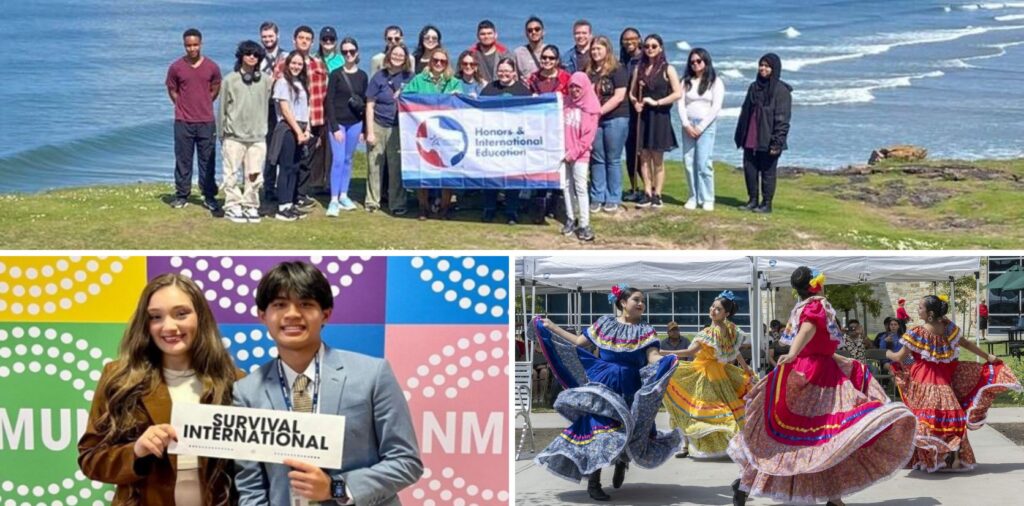How a Texas Community College Brings the World to 12,000 Students Each Year
IIE congratulates Lone Star College (LSC) on receiving a 2025 Andrew Heiskell Award for Innovation in International Education in the category of Widening Access to International Education. LSC’s Global EdVantage initiative has grown LSC’s international division from a small office that offered one or two study abroad trips each year, to a comprehensive joint office that delivers international education and training to 12,000 students and faculty throughout the Houston, Texas, area community college system each year. Officers from Lone Star College participated in a Q&A to share details about their award-winning initiative.
Tell us about Lone Star College and the Global EdVantage. Why and how did this initiative come about?
At Lone Star College, our motto is “Start Close, Go Far.” We provide high-quality, low-cost academic transfer and career training education so that students are trained for tomorrow’s workforce today. The Global EdVantage initiative began out of necessity in 2017. We had only a four-person office to develop and sustain internationalized programming for the seven colleges and 15 centers serving approximately 85,000 students across the greater Houston area.
By creating Global EdVantage, we sought to focus on improving student outcomes, especially in students’ efforts to transfer to four-year institutions and/or secure rewarding careers. It focuses on providing access to international courses, study abroad opportunities, language and culture programs, intercultural co-curricular activities, and faculty-led efforts to expand intercultural engagement.
Tell us more about the program design.
The Global EdVantage initiative was designed as a comprehensive model with multiple points of entry for global education opportunities. The key is an integrated delivery model comprised of students enrolled in International Studies-designated courses, an International Faculty Fellow (IFF) working group, increased study abroad options, and a new Global Scholars language and culture program at the LSC Honors College. By implementing a systems thinking approach, this model is scalable even with modest resources.
How do you measure success?
We’ve seen greater transfer and career success among our students, and we’ve built greater capacity for faculty training. Consider the following:
- In fall 2024, just under 9,000 students were enrolled in International Studies-designated courses (up from 904 in fall 2017).
- The Honors College’s Global Scholars language and culture program now has just under 400 students (up from 42 students in its inaugural year in 2020).
- Last year, 135 students participated in one of seven available study abroad programs (up from 4 in 2017), and 60 students participated in one of four virtual exchange programs (up from zero in 2017).
- From 2021 to 2023, we tracked data on Jack Kent Cooke Undergraduate Transfer Scholarship; 50 LSC students were named as semi-finalists (with at least one finalist each year), making LSC the second top producer in the country. We believe that Global EdVantage has been instrumental in this consistent success—every LSC semifinalist had an international experience on their resume.
Finally, the Global EdVantage program has also allowed us to build capacity for faculty training, and this has resulted in LSC being named a 2023 Fulbright Top Community College Sender and designated a Fulbright HSI Leader in 2024.
Who are the champions of international education at your institution?
This interconnected model is sustained by a collaborative structure of the Office of Honors and International Education, Faculty Fellows, and campus Designated School Officials. Dr. Katharine Caruso, Associate Vice Chancellor of Honors and International Education, and her team, with the support of the LSC administration, continue to seek ways to enhance assessment while maintaining a model of learning through continual adaptation to the current global environment. The benefits include growth in our international education programs through excellent leadership, connection to students, and an awareness of ever-changing trends in the global economy.
